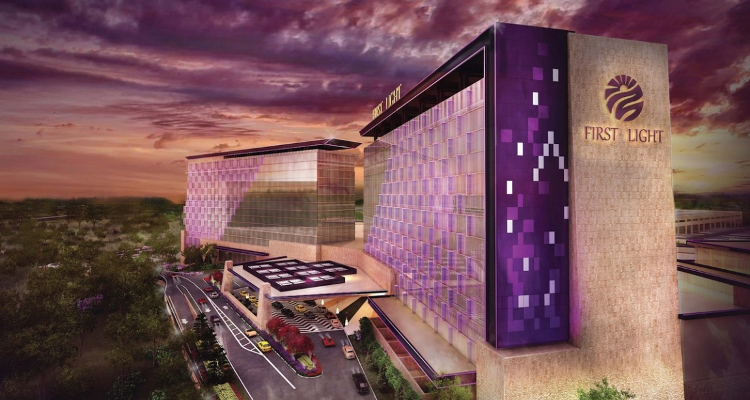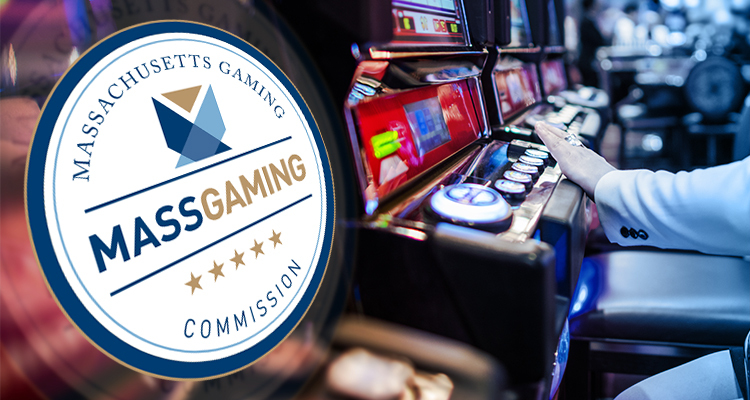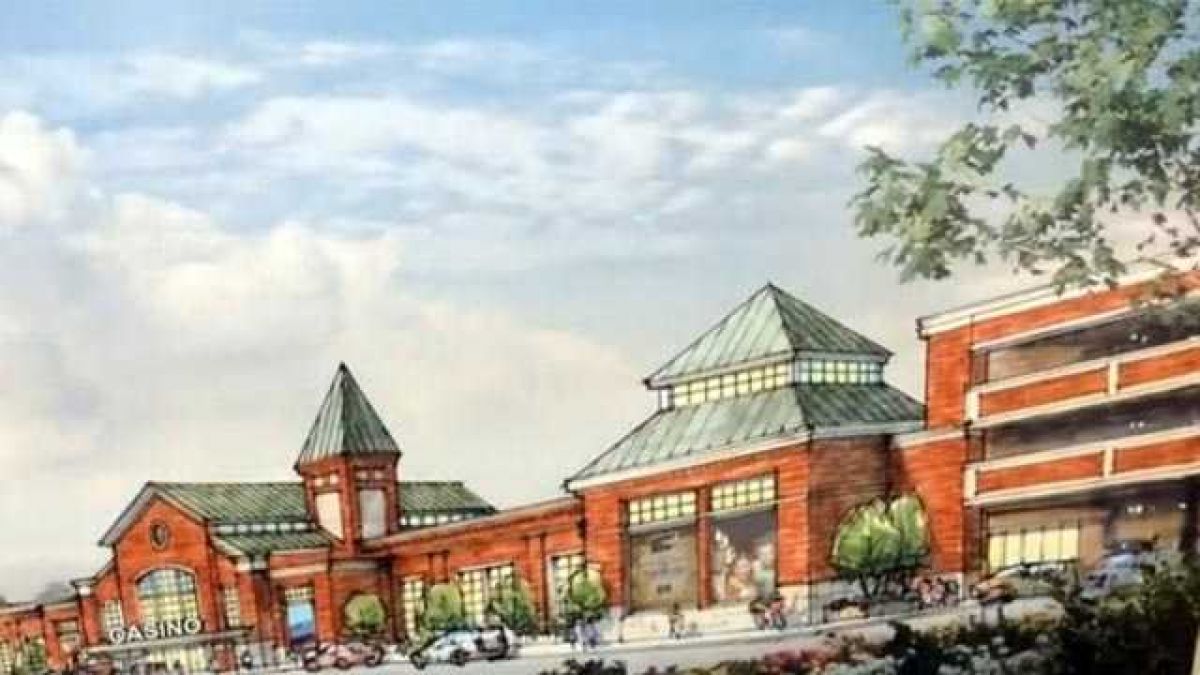Brockton Casino News
The Massachusetts Gaming Commission last week voted 4-1 against issuing license for a commercial casino at the Brockton fairgrounds. Mass Gaming & Entertainment proposed a 7 million casino 25 miles away from Taunton, where the Mashpee Wampanoag tribe earlier this month broke ground on a billion casino resort.

Cruise said that, with the Wynn casino dealing with a court case and the Springfield casino proposal stalled for another year, the Brockton casino would open in spring of 2019 or earlier to help. No Casino in Brockton. The proposed casino in Brockton will increase crime, take advantage of our seniors, corrupt our kids, our veterans, and those who are down on their luck.
The voted ended the yearlong effort by Mass Gaming, a subsidiary of Rush Street Gaming, to qualify for the commercial license for a southeastern zone casino.
Mass Gaming’s Joe Baerlein reacted to the vote by saying his company was disappointed and thanked the panel for “thoughtful” deliberation, adding,
“If given the opportunity, we are confident we would have built a great project.”
Mashpee Chairman Cedric Cromwell, whose tribe had threatened to sue the commission if it voted for the commercial casino, thanked the commission for “making a difficult but wise and just decision.” He added, “Historically, our people have been the recipients of a string of broken promises. Today is not one of those days. Today, the gaming commission upheld the Commonwealth’s end of the bargain, paving the way for a fruitful economic partnership.”
Although the vote appears to achieve a certain finality regarding Brockton, it leaves open the door to no casino being built in the southeastern zone due to a court challenge to the Mashpees in federal court by residents of Taunton.
Rush Street Gaming’s Neil Bluhm brought that issue before the commission several weeks ago when he declared, “There’s very little risk to the Commonwealth in issuing us a license. But there will be no jobs, no tax revenue and no economic development if it’s determined they can’t put land into trust. It will be a mess.”
The tribe appears sanguine on the issue, and confident that it will survive the challenge.
The Brockton casino would have had 2,100 slot machines, 124 gaming tables, a 250-room hotel and several restaurants, bars and entertainment options.
Brockton is an economically strapped community of about 93,000 that could benefit from the 2,000 temporary construction jobs and 1,800 permanent jobs that could result from the casino being based there. According to Neil Bluhm owner of Rush Street Gaming, the parent company for Mass Gaming, “They’re in desperate need of economic development.” Bluhm’s partner in the venture was George Carney, owner of the Brockton Fairgrounds.
For that reason Brockton Mayor Bill Carpenter had urged the commission to approve of the license.
Mass Gaming was the only applicant for the southeastern casino zone license.
Before the vote seven Bay State legislators wrote the commission asking it to request that the Revenue Division conduct a financial analysis of the effect of allowing the Brockton casino before issuing a license.
Their letter highlighted the elephant in the room, namely that if the Brockton casino was licensed then the $1 billion Mashpee Wampanoag tribe’s First Light Resort and Casino in Taunton would not be obligated to pay any state taxes.
This, and the fact that the tribe not paying taxes to the state was not balanced out by 25 percent taxes from Brockton may have been a major factor in the commission’s decision. The Mashpees’ tribal state gaming compact obligates them to pay the state 17 percent of gaming revenues, but only if the tribe has a monopoly on gaming in the southeastern casino zone, known as Region C. Any competition reduces that percentage to zero.
The seven lawmakers wrote, “The prospect of a tax-free casino operating within the commonwealth was not a rationale for either the Legislature’s decision to expand gaming, nor, we are sure, for the more than 1.2 million Massachusetts voters who supported our decision via referendum at the last election.”
Mass Gaming argued that its report showed that the two casinos, competing together, would generate more revenue for the state than the tribal casino competing alone.
The study was provided by the Innovation Group, which was commissioned by Neil Bluhm, owner of the Rush Street Gaming, the parent company of Mass Gaming & Entertainment.
However, the Mashpee tribe cited its own study, by the Spectrum Group, which found that Massachusetts would lose $28 million annually from the competing casinos.
Brockton Casino News
During its first day of hearings the five-person commission heard one of its own come down on the side of the $28 million annual loss estimate.
Commissioner Enrique Zuniga, quoting from the Spectrum Group’s report, commented, “Their market assessment does not fully appreciate the potential magnitude of the competition.”
Each commissioner had as his or her task to rate different aspects of the project. Zuniga gave Rush Street high ratings on its ability to finance the project, but noted that when the Mashpee casino is factored in, the Brockton’s facility’s viability dropped to only “sufficient.”
Commission Chairman Stephen Crosby had described the Brockton project as a “great disappointment” due to a lack of a way to revitalize the economy of the city.
Brockton Casino News
“The expanded gaming legislation made a high priority that our facilities should be ‘destination resort casinos’ with a deep commitment to associated economic development. This proposal presents a plan for a nice local convenience casino,” said Crosby.
The report projected that the Brockton casino would earn between $200 million and $245 million, considerably less than the $327 million the report commissioned by Mass Gaming projected.
Commissioner Lloyd Macdonald, reviewed building and site design, gave the project a “sufficient” grade. He added, “From the design perspective, it is a solid application, well conceived and well presented,” he said.
However he criticized the project for lack of water conservation plans and its plans to deal with students passing by from a local high school.
The company was also required to explain about a $1.65 million fine that had been imposed on its Illinois casino for hiring a cleaning company with alleged mob connections. The company’s attorney explained that two employees were fired over the incident, the casino replaced its cleaning company and put new internal controls in place.

This prompted the commission’s Investigations and Enforcement Bureau Director Karen Wells to advise the commission to insist on a “particularly strict form of oversight to ensure these types of procedural lapses don’t occur in Massachusetts.”
The Mashpees were delighted with the news.
“That Brockton casino would’ve cannibalized the market and effectively destroyed the commercial gaming landscape and we’re excited that the Mass Gaming Commission made a difficult, but wise and just decision,” said Wampanoag Tribe Chairman Cedric Cromwell.
Brockton Casino News Today
The commission also reviewed Mass Gaming’s request to defer the $85 million license fee because of the likelihood that the Mashpees will sue if the license is granted. The company said it doesn’t want to have its funds tied up while the litigation is decided.
The commission has the right to license four total casinos, three of which it has already authorized. The possibility of a fifth casino arose when the Mashpees encountered delays in putting their land into Taunton into trust. This led to the commission making the decision to open bidding for the Region C license to commercial developers. Now that the Mashpees have not only put land into trust but coming roaring back with a $1 billion casino backed by the Genting Group, many are calling on the commission to follow the original intent of the 2011 Gaming Expansion law for a lone Indian casino in Region C.
Although the Bureau of Indian Affairs put the Taunton land into trust last year, that decision has been challenged in federal court by several residents of Taunton. Bluhm argues that it would be risky for the state to put all of its eggs in the Taunton basket because of the possibility that the casino could be halted by a federal judge.
Wynn Boston Harbor
The commission also took up the environmental approval for the $2 billion Wynn Boston Harbor. It endorsed environmental approvals of several state agencies, a scrutiny that one spokesman said was the most that any private project has received in state history.
The commission attached a clause to the approval that reserves for the commission the power to revisit the issue of traffic concerns at Sullivan Square in Boston’s Charlestown community and require Wynn to pay more for traffic impacts and mitigation.

That would be in addition to the $36 million that the developer is already required to pay. State Attorney General Maura Healey, who has called for the state to require more from Wynn, praised the commission for making Wynn pay “its fair share.”
A spokesman for the AG added, “We also appreciate the commission adopting our recommendation to strengthen the monitoring requirements for determining actual traffic impacts of the casino, and support the commission’s ability to impose additional traffic mitigation as necessary.”
The Wynn project is not yet ready for a groundbreaking because one more lawsuit remains, this one from Somerville Mayor Joseph A. Curtatone, who is separately appealing the Department of Environmental Protection’s approval earlier this year.
 © Pat Greenhouse Neil Bluhm aims to build a casino in Brockton.
© Pat Greenhouse Neil Bluhm aims to build a casino in Brockton.You could call Neil Bluhm a betting man.
A real estate magnate from Chicago, Bluhm and his local venture, Mass Gaming & Entertainment, ended up as the second-largest corporate spender on lobbying efforts in the state last year, according to new figures from the secretary of state’s office.
Mass Gaming spent $662,000 on lobbying fees last year. That put it right behind the returning champ, Partners HealthCare, which spent $704,000. (This ranking doesn’t include trade groups.)
The hospital network happens to be the state’s largest private-sector employer, a colossus in a heavily regulated industry.
Mass Gaming, in contrast, has no employees or operations. Instead, it is still just a development venture, with one main goal now: building a $700 million casino in Brockton.
Mass Gaming was also second behind Partners in 2018. But that year it spent “only” $430,000 on lobbying. The venture’s spending rose by more than 50 percent in 2019, spread among three lobbying firms: Smith, Costello & Crawford, Rasky Partners, and Keswick Consulting. It was by far the busiest time for lobbying here for Mass Gaming, a partnership between Bluhm’s Rush Street gaming business and Raynham Park owner George Carney.
Mass Gaming spokesman Joe Baerlein said it is natural his client’s spending would be high: Pursuing a gaming license in Massachusetts requires a fair amount of lobbying, in part because two other full-scale casinos are already up and running and state gaming commissioners have hardly been enthusiastic about awarding a third license.
Last year, Bluhm and his team saw an opening, a chance to persuade the Massachusetts Gaming Commission to reconsider its earlier rejection of the Brockton plan.
Four years ago, the commission had denied their request for the casino license designated for Southeastern Massachusetts. It remains the last such license left for the commission to dole out. MGM and Wynn hold similar licenses for their Springfield and Everett casinos, and Penn National operates Plainridge Park in Plainville with the state’s only slots-parlor license.
Mass Gaming didn’t have more luck the second time around, at least not at first: In September, the gaming commission decided not to revisit its earlier decision.
But it got the commissioners thinking: Maybe the southeastern region should get a casino, after all. The commission is currently seeking comments from the public about whether it should reopen the region, dubbed Region C in the state’s casino law, to a casino competition. Comments are due March 16. The commission is also weighing whether to hire an outside firm to conduct a market analysis of the region, to make sure there are enough gambling dollars to go around.
If Region C gets reopened, Mass Gaming representatives believe they would have a good shot.
Brockton Casino News 2020
After all, only one other developer has made public its interest in the region, and that proposal needs the Legislature’s help. Developer Tom O’Connell has proposed building a horse track and casino in Wareham. But he only wants a license to run a slots parlor, which requires a much smaller upfront investment than a full-scale casino with table games. He needs the casino law to be changed for that to happen; only one is authorized under state law, and Plainridge already has it.
O’Connell’s project would cost about $300 million. Mass Gaming, meanwhile, said it would invest at least $700 million in a Brockton complex, which would be built at the Brockton Fairgrounds property owned by Carney.
Then there’s the Mashpee Wampanoag tribe, which still hasn’t given up on its hopes for a Taunton casino. The tribe’s project would be built under its sovereign rights, and not through a state license. The prospect of a competing casino a short drive down Route 24 from Brockton was a big reason the commission rejected Mass Gaming in the first go-around, in 2016.
Maybe not anymore. A federal appeals court panel dealt the tribe a major losing hand Thursday, by upholding a lower-court decision that essentially blocked the tribe from putting the Taunton land in trust for a casino. The potential rival isn’t out of the game — another appeal is pending in D.C. — but the odds for the Mashpee just became much longer.
Meanwhile, Brockton waits for the potential boon from a casino: the hotel and event space, the restaurants, the estimated 1,800 jobs.

For this struggling city of nearly 100,000 people, it often feels like economic development goes the other way, such as when Stop & Shop decided to close its supermarket on the city’s west side this month. The new mayor, Robert Sullivan, had to hold his inaugural ball in Randolph, at Lombardo’s in January; organizers said the Shaw’s Center in Brockton was not in good enough shape and there was no other adequate facility in the city. Brockton is only about 20 miles from Boston and all its buzz, but sometimes feels half a world away.
You don’t become a real estate billionaire like Bluhm without making some bets along the way. The appeals court ruling on the Mashpee issue may have just sidelined his biggest rival here, increasing the chances that his big bet on Massachusetts might finally pay off.



